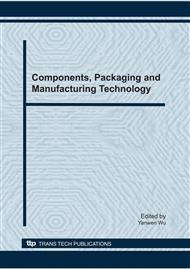p.491
p.496
p.502
p.506
p.512
p.518
p.522
p.528
p.534
A Novel Hybrid Optimization Algorithm Based on Multi-Agent and Particle Swarm
Abstract:
A novel multi-agent particle swarm optimization algorithm (MAI'SO) is proposed for optimal reactive power dispatch and voltage control of power system. The method integrates multi-agent system (MAS) and particle swarm optimization algorithm (PSO). An agent in MAI.SO represents a particle to PSO and a candidate solution to the optimization problem. All agents live in a lattice-like environment, with each agent fixed on a lattice-point. In order to decrease fitness value, quickly, agents compete and cooperate with their neighbors. and they can also use knowledge. Making use of these agent interactions and evolution mechanism of I.SO. MAPSO realizes the purpose of' minimizing the value of' objective function. MAPSO applied for optimal reactive power is evaluated on an IEEE 30-bus power system. It is shown that the proposed approach converges to better solutions much faster than the earlier reported approaches
Info:
Periodical:
Pages:
512-517
Citation:
Online since:
January 2011
Authors:
Price:
Сopyright:
© 2011 Trans Tech Publications Ltd. All Rights Reserved
Share:
Citation:


